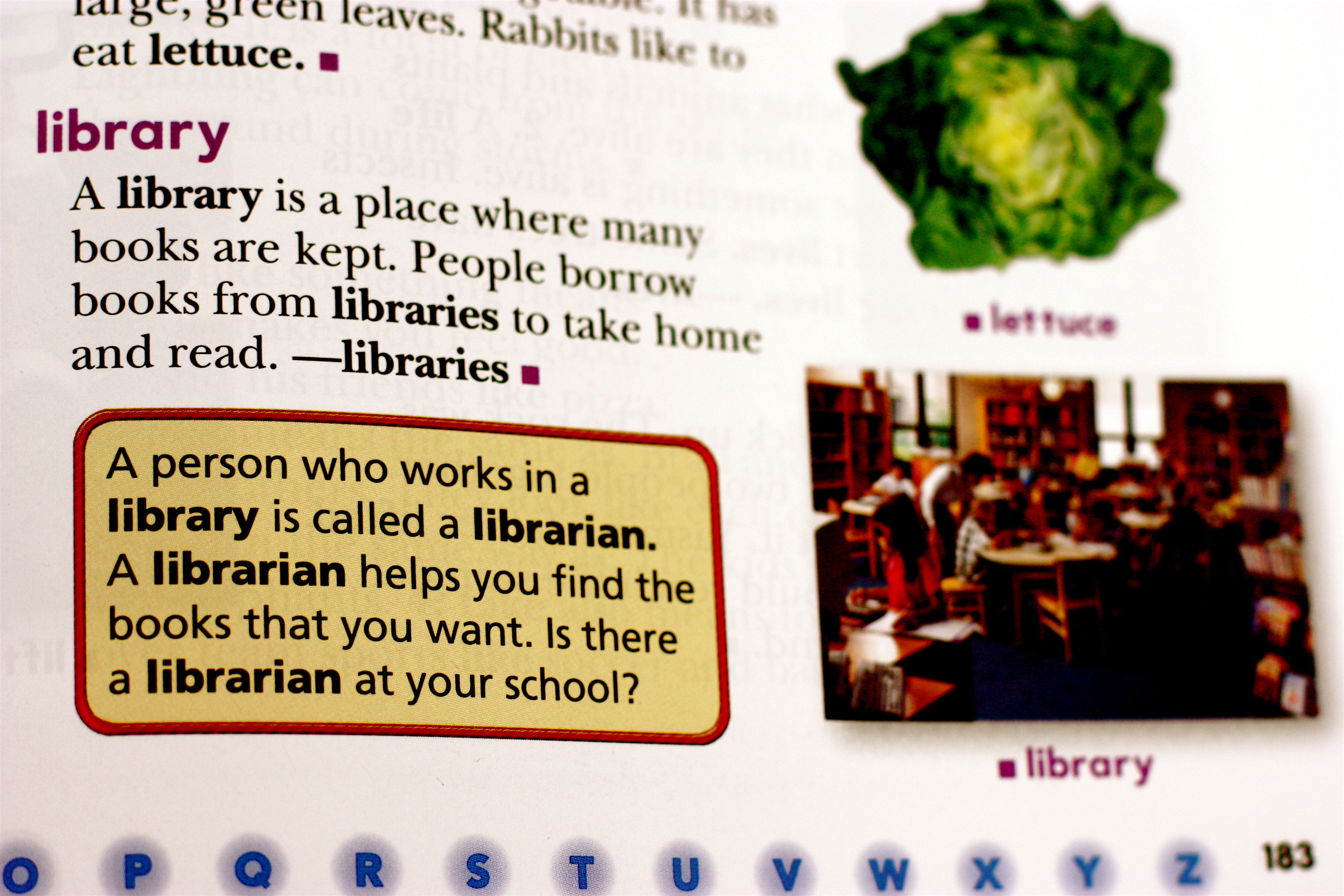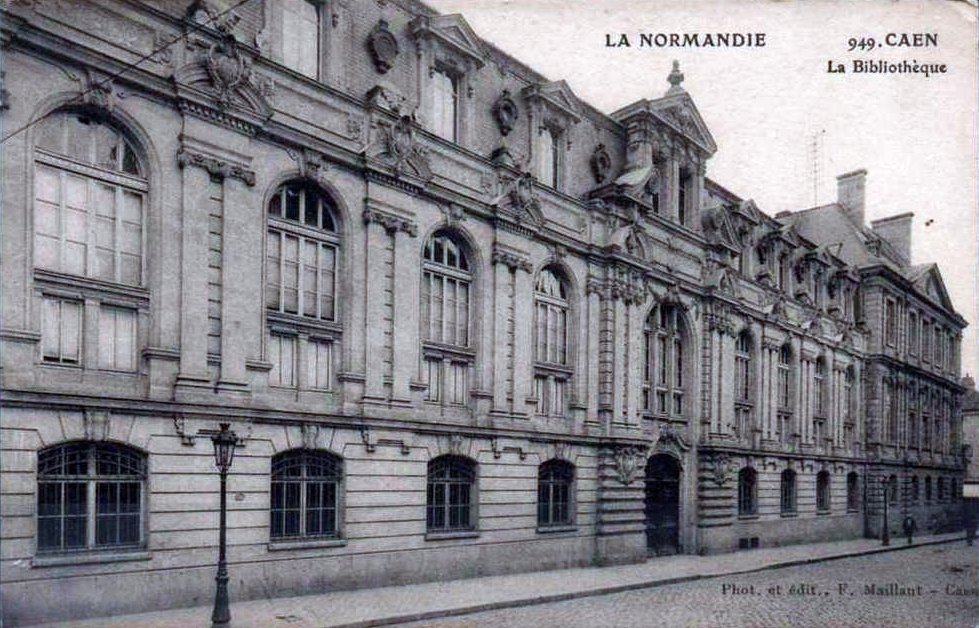Ouch! The title of this post really bothers me. I hope it bothers you, too. I hope you say the word library correctly.
Library comes from the French word, librarie (bookshop or bookstore,) which in turn came from the Latin librarium (chest for books.) Would you care to guess what the Latin root libr- means? It means book.
 |
| Library Defined, By the American Heritage First Dictionary, Lester Public Library, Two Rivers, Wisconsin Photo courtesy of Lester Public Library's photostream on Flickr.com. Some rights reserved. |
Since the word comes from libr-, it is very important to keep that r sound when pronouncing library. Checking out books has nothing to do with lies or berries!
In English, we use the word library to mean a place for books--usually the kind of place that lends books, rather than selling them. Other countries have a word for the same thing, but since they still use words like librarie or libraria for establishments that sell books, they call lending libraries by a word like bibliothèque, Bibliothek, or biblioteca.
 |
| Bibliothèque de l'université de Caen. Photo courtesy of Karl Dupart's solcarluscaen photostream on Flickr.com. Some rights reserved. |
Bibliothèque comes from another word that means book. That Greek word, biblion, is also the source of the words Bible and bibliography. Bibliographies! Ah, yes, the other part of the post title that bothers me: The misuse of the word bibliography. Bibliography comes from biblio- (book) and -graphy (writing.) It usually is used to refer to the list of books cited in a scholarly work.
I hear customers asking for a bibliography when they really mean a biography. These words sound similar, so it's easy to make that mistake. But if you remember that the root biblio- means book, maybe you can remember that a story of a person's life is not a bibliography, but a biography.
Especially since the Latin root, bio- means life. Think of other words that contain the root bio-, like biology (study of life) or antibiotic (a medicine that destroys or inhibits the growth of microorganisms.)
Speaking of biographies, I hear another mistake frequently. Many people ask for the autobiography section of the library, when they really mean the biography section. An autobiography is an account of a person's life, written by that person. So, if the author of a biography is the same person the book is about, it is an autobiography.
These are a few of my favorite picture books in the children's biography section:
Stone Girl, Bone Girl: the Story of Mary Anning
Bon Appétit!: the Delicious Life of Julia Child
The following autobiography by George Carlin is most decidedly not for children, but he sure knew his way around words:
Last Words
Especially since the Latin root, bio- means life. Think of other words that contain the root bio-, like biology (study of life) or antibiotic (a medicine that destroys or inhibits the growth of microorganisms.)
Speaking of biographies, I hear another mistake frequently. Many people ask for the autobiography section of the library, when they really mean the biography section. An autobiography is an account of a person's life, written by that person. So, if the author of a biography is the same person the book is about, it is an autobiography.
These are a few of my favorite picture books in the children's biography section:
Stone Girl, Bone Girl: the Story of Mary Anning
Bon Appétit!: the Delicious Life of Julia Child
The following autobiography by George Carlin is most decidedly not for children, but he sure knew his way around words:
Last Words
Do you have a favorite biography, or autobiography--or even a favorite bibliography? Tell me about it in a comment below.


No comments:
Post a Comment